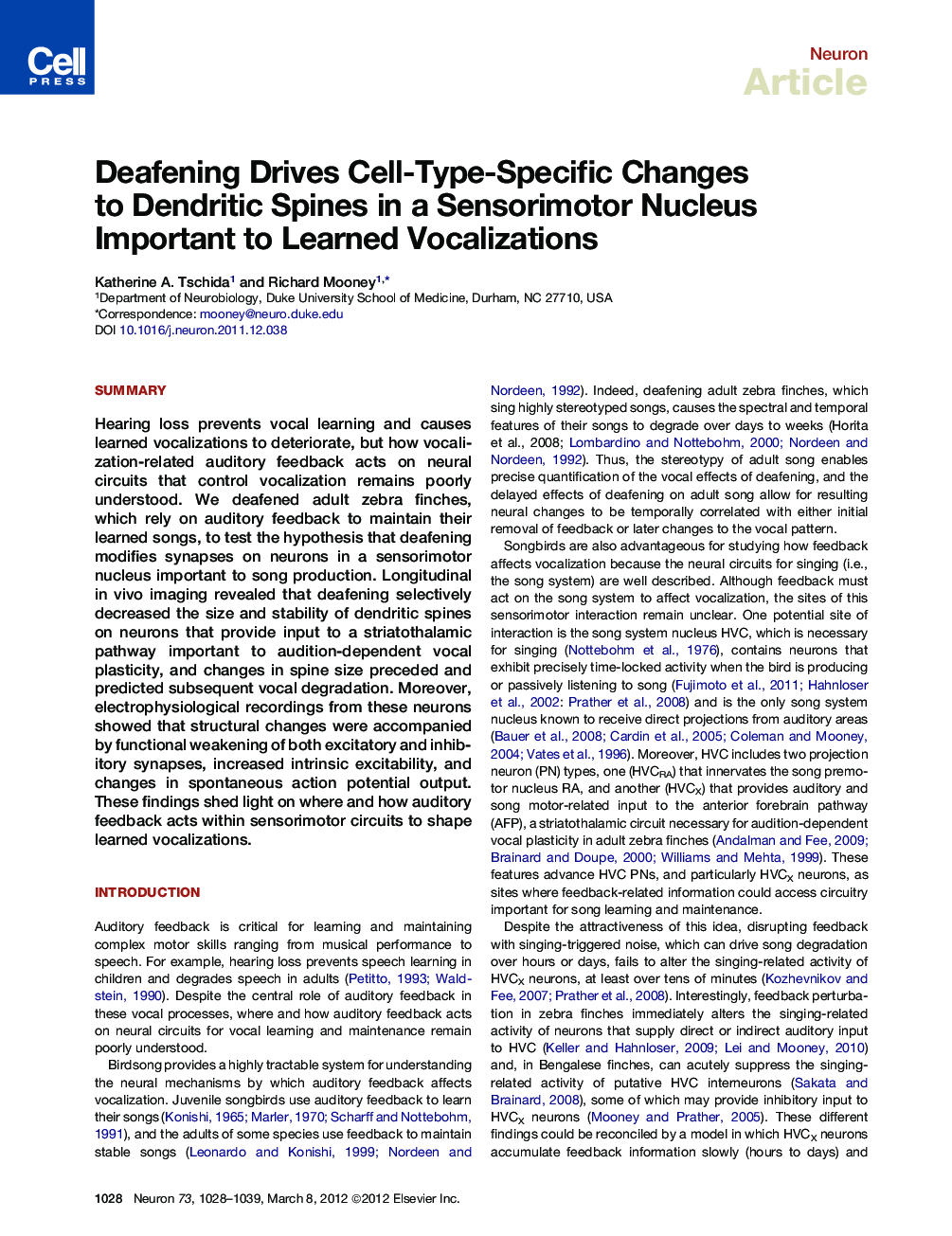| Article ID | Journal | Published Year | Pages | File Type |
|---|---|---|---|---|
| 4321458 | Neuron | 2012 | 12 Pages |
SummaryHearing loss prevents vocal learning and causes learned vocalizations to deteriorate, but how vocalization-related auditory feedback acts on neural circuits that control vocalization remains poorly understood. We deafened adult zebra finches, which rely on auditory feedback to maintain their learned songs, to test the hypothesis that deafening modifies synapses on neurons in a sensorimotor nucleus important to song production. Longitudinal in vivo imaging revealed that deafening selectively decreased the size and stability of dendritic spines on neurons that provide input to a striatothalamic pathway important to audition-dependent vocal plasticity, and changes in spine size preceded and predicted subsequent vocal degradation. Moreover, electrophysiological recordings from these neurons showed that structural changes were accompanied by functional weakening of both excitatory and inhibitory synapses, increased intrinsic excitability, and changes in spontaneous action potential output. These findings shed light on where and how auditory feedback acts within sensorimotor circuits to shape learned vocalizations.
► Deafening shrinks dendritic spines in a sensorimotor nucleus for learned birdsong ► Spines shrink only on neurons innervating a pathway necessary for song plasticity ► Decreases in spine size precede and predict deafening-induced changes to song ► Deafening weakens synapses on these HVC neurons, which could affect singing
